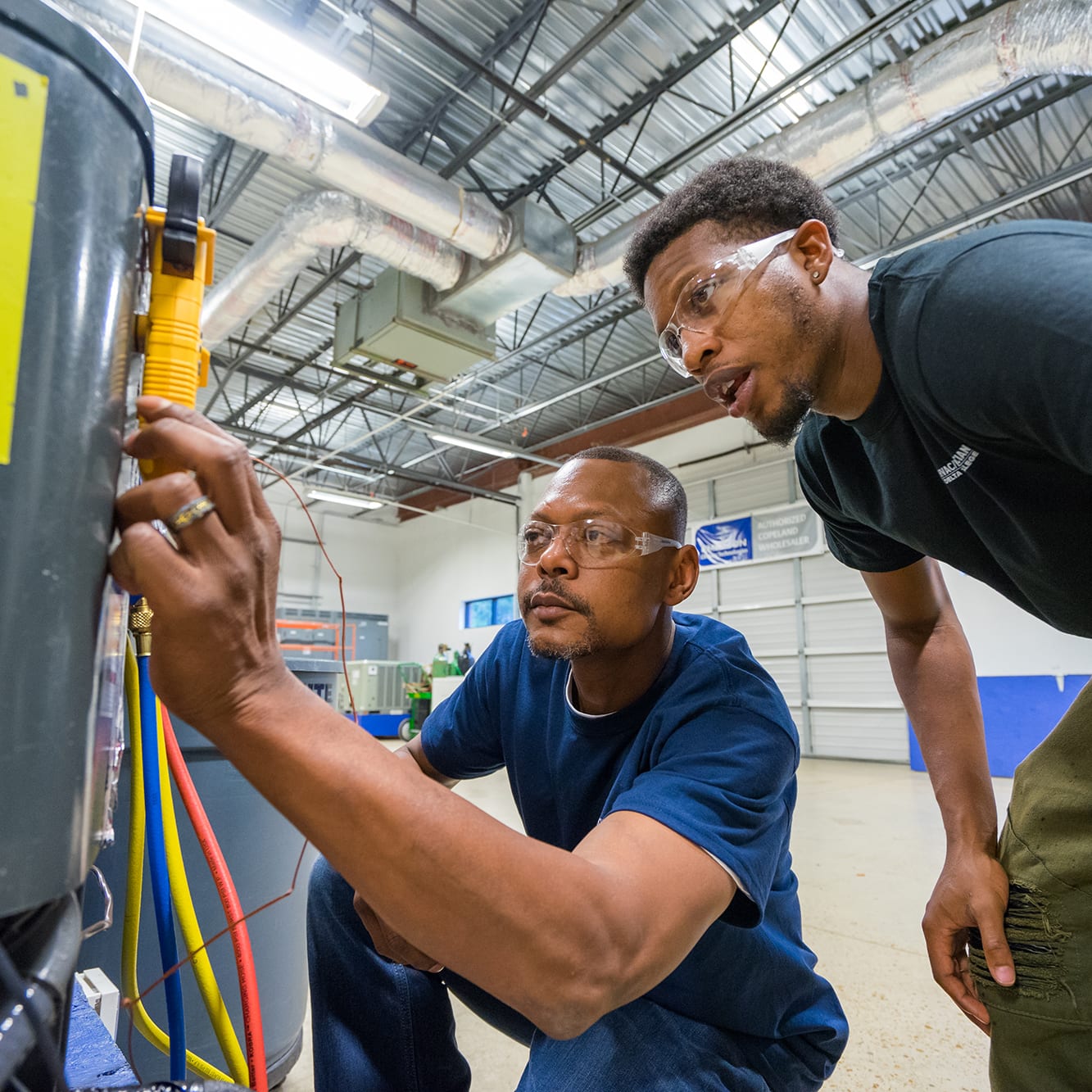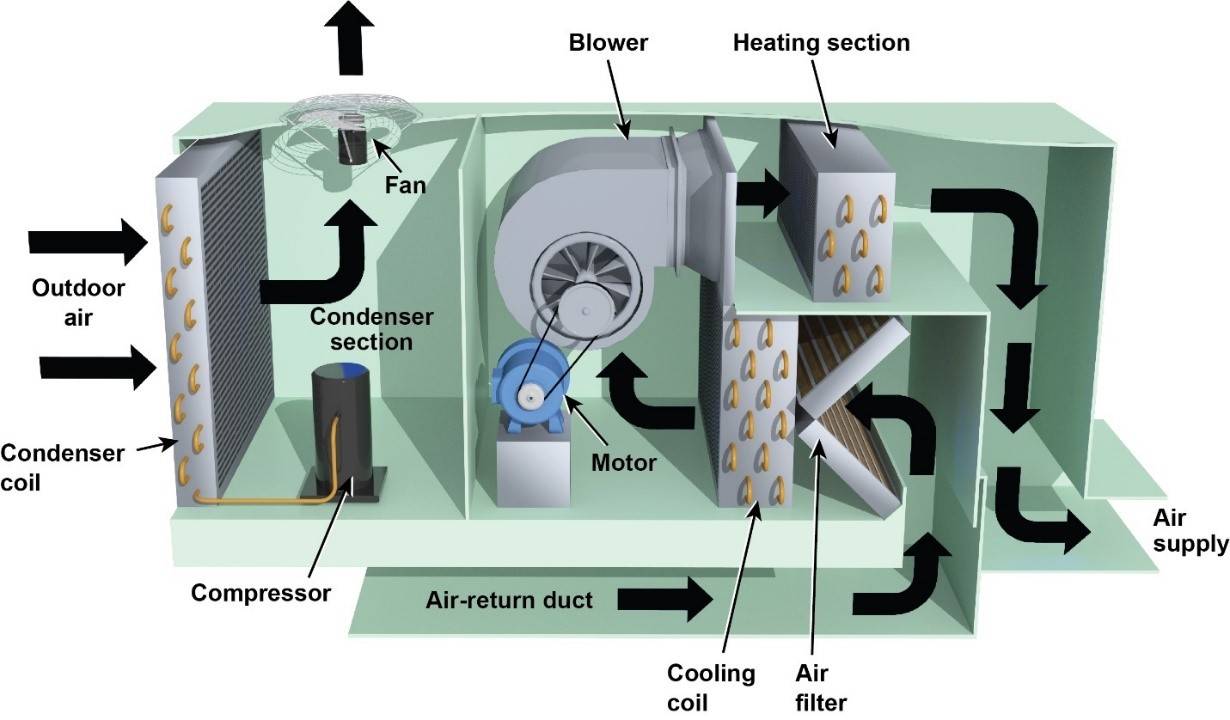Exactly How Air Conditioning Systems Revolutionize Indoor Settings for Year-Round Comfort
The development of air conditioning systems has actually undoubtedly transformed the way we experience indoor environments, providing unmatched control over temperature and convenience throughout the year. These systems go beyond mere temperature modifications; they improve interior air high quality and add substantially to energy effectiveness. With developments like clever technology and programmable thermostats, cooling has actually become a foundation of modern-day living, influencing wellness and wellness. Yet, while we enjoy the comforts they bring, it is critical to take a look at just how these systems incorporate within our lives and their broader effects on sustainability and health. What are the concealed facets of this technological marvel?
Temperature Level Control and Flexibility
When it comes to accomplishing year-round comfort, the relevance of temperature level control and versatility in air conditioning systems can not be overstated. Modern air conditioning units provide advanced modern technologies such as programmable thermostats and variable rate compressors, which permit customers to keep preferred temperature levels with remarkable performance.
Flexibility is one more crucial component of modern cooling systems. With attributes like zoning capabilities, individuals can tailor temperature setups in various locations of a structure, accommodating specific choices and use patterns. This degree of control makes certain ideal convenience in every space while lessening power waste. Additionally, some systems integrate clever technology, making it possible for remote accessibility and management with smart phones. This innovation permits users to change setups on-the-go, giving unrivaled ease and flexibility.
In industrial areas, this flexibility is especially useful, as it allows services to produce tailored environments that enhance performance and client complete satisfaction. Ultimately, the accuracy and versatility of modern cooling systems play a crucial function in providing effective, year-round interior convenience.
Enhancing Indoor Air Top Quality
In enhancement to temperature level control, enhancing indoor air top quality is a crucial aspect of modern air conditioning systems. Including high-efficiency particle air (HEPA) filters, contemporary air conditioners can catch tiny bits, such as smoke, pollen, and dust, which contribute to breathing problems and allergic reactions.
Furthermore, progressed cooling systems commonly consist of functions such as humidity control, which is pivotal in avoiding mold and mildew development and keeping optimum wetness degrees (HVAC Contractor). Extreme humidity can result in discomfort, promote microbial growth, and worsen certain health conditions. By controling moisture, a/c unit aid reduce these risks, even more enhancing interior air top quality
Furthermore, some systems integrate air cleansers and ionizers, employing technologies that neutralize contaminants and deactivate airborne pathogens. This comprehensive approach to air quality monitoring guarantees a much healthier interior setting, lowering the danger of health problem and improving general wellness. As a result, the emphasis on air top quality improvement underscores the advancing function of air conditioning systems past simple temperature regulation.
Power Effectiveness Innovations
Modern a/c systems have actually undertaken substantial developments in energy efficiency, adding to both expense financial savings and environmental sustainability. The fostering of high-efficiency compressors, variable speed motors, and progressed cooling agents are critical technologies that have actually changed exactly how these systems run. High-efficiency compressors utilize much less power to maintain preferred temperature levels, minimizing electrical power intake. Variable rate electric motors readjust the airflow and cooling output to match real-time demand, enhancing efficiency while decreasing power use.
Smart thermostats have likewise played a crucial role in boosting energy efficiency. These devices discover individual choices and adapt cooling timetables accordingly, ensuring that air conditioning systems operate only when needed. heating and cooling installation Combination with clever home innovations permits for remote and tracking, additional curtailing power wastefulness.
These cooling agents are not only much better for the environment yet likewise increase system performance, lining up with global efforts to decrease carbon footprints. Advancements in warmth exchanger modern technology have actually enabled much more reliable warmth transfer, enhancing general system efficiency.
Influence On Wellness and Health
The impact of cooling systems on wellness and health is multifaceted, influencing various facets of day-to-day live. Primarily, these systems give relief from severe temperatures, which is important for at risk populations such as the senior and people with specific health and wellness conditions. By maintaining a steady interior environment, cooling decreases the threat of heat-related diseases, including heat exhaustion and heatstroke, consequently guarding owners' health.

However, it is necessary to maintain cooling systems consistently to ensure their optimum capability and to stay clear of possible health and wellness threats connected with poorly maintained devices, such as the proliferation of bacteria. Eventually, when successfully taken care of, air conditioning systems play a crucial role in boosting convenience, advertising health, and sustaining a much healthier living atmosphere throughout the year.
Integration With Smart Modern Technology
Smart technology has actually transformed the means air conditioning systems run, providing enhanced comfort, control, and effectiveness. Modern a/c systems now integrate flawlessly with wise home ecosystems, enabling customers to handle their interior climate remotely using mobile phones or voice-controlled gadgets. This connection enables real-time monitoring and modifications, making certain that power intake is maximized and comfort is maintained without the need for constant hand-operated treatment.
The combination with smart technology likewise promotes the use of innovative scheduling features, allowing systems to adjust temperatures according to occupancy patterns and preferences. HVAC Contractor. This not only maximizes comfort however additionally decreases unnecessary power use, adding to reduced energy costs and a minimized carbon impact. In addition, smart sensing units supply important information on air quality and system efficiency, informing users to possible issues prior to they rise right into pricey repair work
In addition, compatibility with clever home aides such as Amazon Alexa or Google Assistant enhances user experience by supplying hands-free control and the capability to try this develop custom automation routines. As wise innovation proceeds to evolve, it will unquestionably bring further developments to air conditioning systems, ensuring they remain at the leading edge go right here of providing optimum interior atmospheres year-round.
Conclusion

In addition to temperature level control, improving indoor air quality is a crucial element of contemporary air conditioning systems. Integrating high-efficiency particle air (HEPA) filters, modern air conditioners can record tiny fragments, such as smoke, pollen, and dirt, which contribute to breathing concerns and allergies. By controling humidity, air conditioners assist mitigate these threats, even more boosting indoor air quality.
The emphasis on air high quality enhancement underscores the progressing function of air conditioning systems past simple temperature level policy.
Additionally, air conditioning systems contribute to enhanced interior air quality by filtering system out toxins, allergens, and particulate matter.